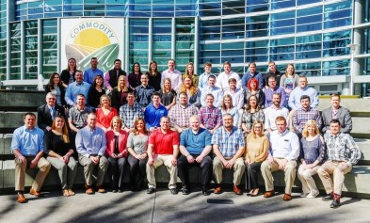$5,000 donation will be used to build grain safety displays for youth
By Diego Flammini
Assistant Editor, North American Content
Farms.com
DuPont Pioneer donated $5,000 to the Canadian Agricultural Safety Association (CASA) to help build grain safety displays aimed at youth.
The grant is being used to further CASA’s Grain Safety Program, which hopes to build a mobile demonstration unit that will serve three purposes:


1. Rescue Training – It will be used to train first responders in grain extrication procedures.
2. General Prevention Education – It will be used as a learning tool to teach the public about the dangers of grain entrapment and the importance of lock-out/tag out procedures.
3. On-site Training – It will provide in-depth prevention and emergency training to workplaces.
“Moving grain poses a significant safety risk on farms and can entrap a person in less than 25 seconds,” Marcel Hacault, executive director of CASA, said in a release. “Thanks to the donation from DuPont Pioneer, we will be able to make a resource available to educate youth on the dangers posed by moving grain.”
CASA has aimed to raise $400,000 to achieve the first phase of its goal, which is to run the Grain Safety Program across the Prairies. According to its website, CASA said it has raised more than $300,000 thus far.
The second phase is to take the program across Canada. CASA says it needs $785,000 to fulfill that goal.